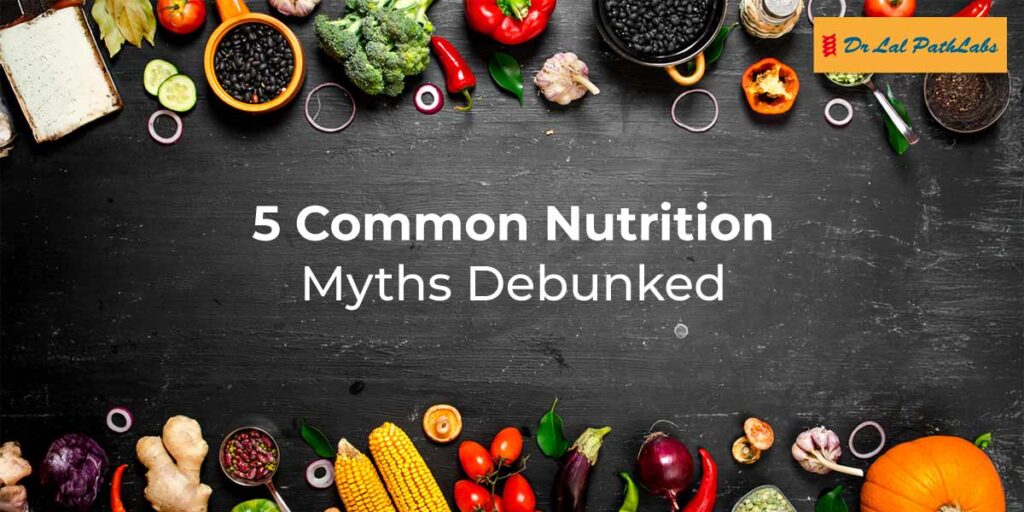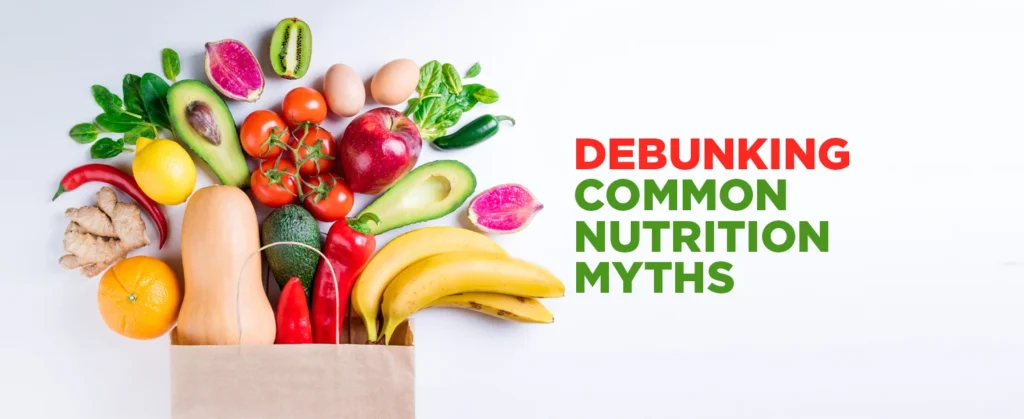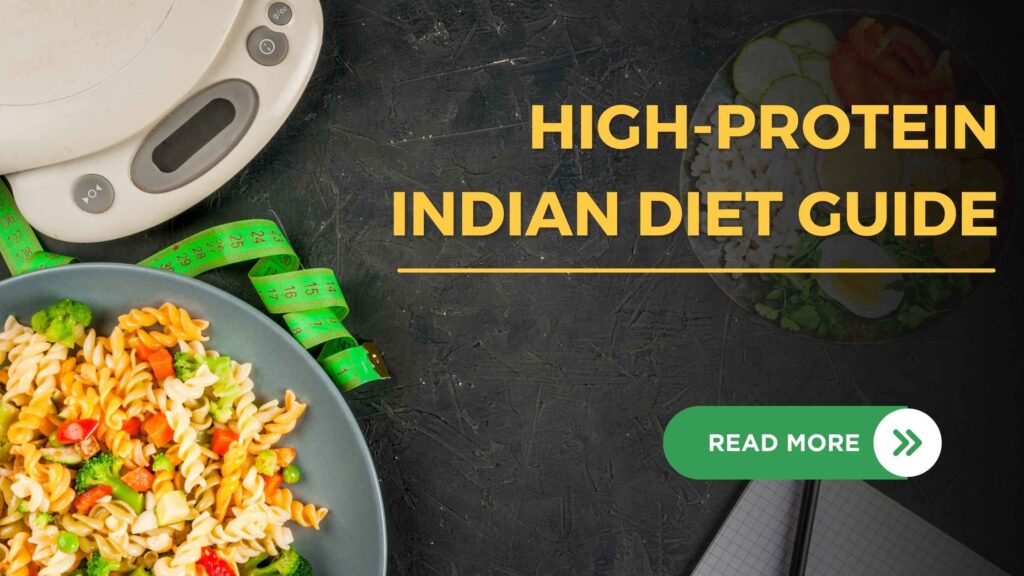Decoding the Plate: Debunking Nutrition Myths in the Indian Fitness Community

The Indian fitness landscape is vibrant and growing, yet it’s often clouded by deeply ingrained nutrition myths. From misconceptions about protein intake in vegetarian diets to the “magic” of certain fasting practices, navigating the right path can be confusing. As we aim for healthier lifestyles here in Nashik, Maharashtra, and across India, it’s crucial to separate fact from fiction. Let’s debunk some prevalent Indian fitness nutrition myths and arm ourselves with evidence-based information, especially concerning protein intake vegetarian Indian diet considerations.

Myth: Vegetarians Can’t Get Enough Protein for Muscle Building. This is a significant misconception, particularly given the large vegetarian population in India. The truth is, a well-planned vegetarian diet can absolutely provide sufficient protein for muscle growth and repair. Sources like lentils (dal), chickpeas (chana), kidney beans (rajma), paneer (Indian cheese), tofu, soy products, nuts, seeds, and protein-rich grains like quinoa are excellent sources of protein. Understanding how to combine different plant-based proteins to ensure a complete amino acid profile is key. The focus should be on variety and adequate quantity, not the absence of meat.
Myth: More Protein Always Equals More Muscle. While protein is essential for muscle building, simply overloading on it won’t lead to significantly more gains. The body can only utilize a certain amount of protein for muscle protein synthesis. Excess protein is either used for energy or stored as fat. The key is to consume an adequate amount of protein, spread throughout the day, in conjunction with consistent strength training and sufficient calorie intake. The ideal protein intake vegetarian Indian diet should still fall within recommended guidelines based on activity levels.
Myth: All Fats are Bad and Should Be Avoided. This is a global myth that also permeates the Indian fitness community. Healthy fats, such as those found in avocados, nuts, seeds, olive oil, and even ghee in moderation, are crucial for hormone production, nutrient absorption, and overall health. Completely eliminating fats can be detrimental. The focus should be on distinguishing between healthy unsaturated fats and unhealthy saturated and trans fats, often found in processed and fried foods, which should be limited.
Myth: Carbohydrates are the Enemy of Fat Loss. Carbohydrates are a primary source of energy for the body, especially during workouts. Cutting them out entirely can lead to fatigue and hinder performance. The key is to choose complex carbohydrates like whole grains (wheat, jowar, bajra, ragi), brown rice, oats, and vegetables, and to consume them in appropriate portions. Simple, refined carbohydrates found in sugary drinks and processed foods should be limited. This applies to all diets, including those within the Indian fitness nutrition context.
Myth: Fasting is a Magic Bullet for Weight Loss and Detox. While intermittent fasting can be a viable strategy for some, it’s not a magical solution and doesn’t work for everyone. Furthermore, extreme or prolonged fasting can be detrimental and lead to nutrient deficiencies, especially if not done correctly. The focus should be on sustainable dietary changes and a balanced approach to nutrition rather than relying on fasting for “detoxification,” as the body has its own efficient detoxification systems (liver and kidneys). Different types of fasting practices are prevalent in India, and it’s important to understand their potential benefits and risks in a fitness context.
Myth: Traditional Indian Sweets are Entirely Off-Limits for Fitness Enthusiasts. While many traditional Indian sweets are high in sugar and fat, completely restricting them can sometimes lead to cravings and an unhealthy relationship with food. Moderation and mindful consumption are key. Opting for smaller portions or choosing sweets made with healthier ingredients (like jaggery or dates in some cases) can be a more sustainable approach.
Myth: Supplements are Essential for Building Muscle. The supplement industry is vast, but the foundation of muscle building lies in a well-balanced diet and consistent training. While some supplements like creatine or protein powder can be helpful in specific situations, they are not essential for most individuals, especially those following a nutrient-rich diet that addresses their protein intake vegetarian Indian diet needs
Evidence-Based Guidance for the Indian Fitness Community:

- Prioritize Whole, Unprocessed Foods: Focus on a diet rich in fruits, vegetables, whole grains, lentils, legumes, nuts, and seeds.
- Ensure Adequate Protein Intake: Vegetarians should strategically combine protein sources throughout the day to obtain all essential amino acids. Aim for a sufficient daily intake based on your activity level.
- Don’t Fear Healthy Fats: Include sources of unsaturated fats for overall health and hormone production.
- Choose Complex Carbohydrates: Fuel your workouts and daily activities with whole grains and vegetables.
- Practice Mindful Eating: Pay attention to your hunger and fullness cues and enjoy your food in moderation.
- Stay Hydrated: Drink plenty of water throughout the day.
- Consult Professionals: Seek guidance from qualified nutritionists or dietitians who understand the Indian dietary context and can provide personalized advice.
- Prioritize Whole, Unprocessed Foods: Focus on a diet rich in fruits, vegetables, whole grains, lentils, legumes, nuts, and seeds.
More Nuances and Debunked Myths:

Myth: Ghee is Pure Fat and Should Be Completely Avoided. Ghee, or clarified butter, holds cultural significance in India and has been a part of traditional diets for centuries. While it is indeed a source of saturated fat, completely demonizing it might be an oversimplification. Some research suggests potential benefits of ghee in moderation, such as being a source of fat-soluble vitamins and having a high smoke point suitable for Indian cooking. The key, as with all fats, lies in moderation and understanding the quality. Opting for grass-fed ghee, if accessible, might offer a slightly different nutritional profile. The context of overall dietary intake and individual health conditions is crucial rather than a blanket avoidance.
Myth: Fruit is High in Sugar and Should Be Limited, Especially for Weight Loss. Fruits are packed with vitamins, minerals, antioxidants, and fiber, all essential for good health. While they do contain natural sugars, the overall nutritional benefits far outweigh the sugar content, especially when consumed in whole form. The fiber in fruits helps regulate blood sugar levels and promotes satiety, making them a valuable part of a balanced diet, even for weight management. Focusing on whole fruits rather than fruit juices (which lack fiber and have concentrated sugars) is the key. Seasonal Indian fruits like mangoes, bananas, and chikoos, while sweeter, can still be enjoyed in moderation as part of a healthy Indian fitness nutrition plan.
Myth: Eating After 7 PM Leads to Weight Gain. This is a popular belief not exclusive to India but often strongly adhered to. The truth is, weight gain or loss is primarily determined by the total calories consumed versus calories burned over a 24-hour period, not the specific timing of meals. What you eat and how much you eat matters more than when you eat. However, late-night snacking on unhealthy, high-calorie foods can certainly contribute to weight gain. If your last meal of the day falls after 7 PM and fits within your overall calorie and macronutrient goals, it’s unlikely to cause weight gain on its own. Focusing on balanced meals at regular intervals is a more sustainable approach.
Myth: “Superfoods” are the Key to Unlocking Fitness and Health. The term “superfood” is often used in marketing to promote certain foods as having extraordinary health benefits. While foods like turmeric, amla, and moringa, which are prevalent in Indian cuisine, are indeed nutrient-dense and offer various health advantages, relying solely on them for fitness and health is unrealistic. A holistic approach that includes a balanced diet with a variety of whole foods, regular exercise, and adequate sleep is far more effective than chasing after individual “superfoods.” These nutrient-rich Indian ingredients can certainly be part of a healthy Indian fitness nutrition plan, but they are not a substitute for a well-rounded diet.
Myth: You Need Expensive Imported Supplements to See Results. The Indian market is increasingly flooded with imported fitness supplements. However, effective fitness results can absolutely be achieved with a well-planned diet based on locally available and affordable whole foods. As discussed earlier, supplements can be helpful in specific scenarios but are not essential for the majority of individuals. Prioritizing a nutrient-rich protein intake vegetarian Indian diet or a balanced non-vegetarian diet, sourced locally, should be the primary focus.
Myth: Vegetarian Diets are Inherently Deficient and Don’t Support Intense Training. This reiterates the earlier point but deserves further emphasis. Many successful Indian athletes, bodybuilders, and fitness enthusiasts thrive on well-planned vegetarian diets. By focusing on a variety of plant-based protein sources, ensuring adequate intake of micronutrients like vitamin B12 (which may require supplementation for strict vegetarians), iron, and calcium, and understanding nutrient timing, a vegetarian diet can fully support even intense training regimens. The key is knowledge and careful planning of your protein intake vegetarian Indian diet.
Empowering Yourself with Knowledge:

Navigating the world of fitness and nutrition can be challenging, especially with the constant influx of information, often conflicting. The best approach is to:
- Seek Reliable Sources: Look for information from qualified nutritionists, dietitians, and evidence-based scientific research.
- Be Critical of Trends: Question claims that seem too good to be true and be wary of quick-fix solutions.
- Understand Your Individual Needs: What works for one person may not work for another. Consider your activity level, health conditions, and dietary preferences.
- Focus on Sustainability: Aim for long-term, balanced dietary habits rather than restrictive or fad diets.
- Embrace the Diversity of Indian Cuisine: Indian food, when prepared with a focus on whole ingredients and mindful cooking methods, can be incredibly nutritious and supportive of fitness goals.
By critically evaluating the information we encounter and focusing on fundamental principles of nutrition within the Indian context, we can move towards a healthier and more empowered fitness journey, right here in Nashik, Maharashtra, and across the nation. Let’s continue to learn, question, and make informed choices that truly nourish our bodies and support our well-being.
Want more Indian-focused fitness tips and meal plans? Subscribe for weekly insights that fit your lifestyle and fuel your muscle growth!


